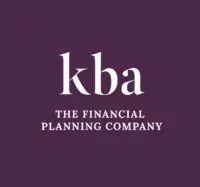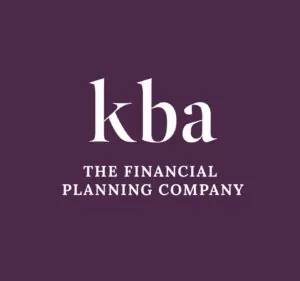The majority of Brits feel stressed about planning their retirement, a survey from Aviva finds. While later-life planning can seem complex, taking control of your goals and pension during your working life can mean you feel more confident.
The survey found that 61% of Brits feel stressed when they think about retirement planning. Unsurprisingly, given the current economic uncertainty, money is a big concern. The research found:
- 71% of people worry about whether they have enough money set aside for retirement to do all the things they want to do.
- 65% are concerned about how long their pension will last.
- 59% are unsure if they are paying enough into a pension.
If you’re worried about your retirement, here are five steps you can take.
-
Understand how your pension will grow during your working life
The research found that younger generations are the most concerned about retirement. It suggests that those nearing the milestone, who have had longer to build up pension benefits, feel more confident. Understanding how your pension will change during your career can help you feel more positive about your financial security later in life.
The final figure you want to save in a pension can seem daunting but remember that this is often built up over decades.
It’s not just your contributions that count either. In many cases, your employer must also make contributions on your behalf. In addition, your contributions will often benefit from tax relief and will usually be invested.
As a result, your pension goal may be easier to reach than you first think.
If you’re not sure if you’re on track, a pension review with a financial planner can help. It’s never too soon to understand if you’re saving enough. If there is a gap in your savings, knowing sooner means you will have more options.
-
Increase your pension contributions
A pension is a tax-efficient way to save for retirement. So, if you want to boost your retirement savings to achieve a more comfortable lifestyle, increasing your contributions could make financial sense.
Assuming you don’t exceed the Annual Allowance, your contributions will typically benefit from tax relief at the highest rate of Income Tax you pay. So, if you’re a basic rare tax payer and want to make a pension contribution of £100 a month, this will only cost you £80 a month, as HMRC will add an extra 20% in tax relief. This falls to £60 and £55 for higher-rate (40%) and additional-rate (45%) tax payers respectively.
The Annual Allowance for most people is 100% of their annual earnings up to £40,000. However, if you’re a high-earner or have already flexibly accessed your pension, your allowance may be lower. Please contact us if you’re not sure how much your Annual Allowance is.
As well as tax relief, investments held in your pension can grow free from tax. Instead, you may pay Income Tax when you start to draw an income later in life.
If creating financial security in retirement is a priority, increasing your pension contributions could be right for you.
-
Make your pensions easier to manage
One of the challenges of managing your retirement savings is that you will often have more than one pot. The Aviva research found that half of Brits were unsure whether they should have more than one pension.
Over your working life, you’re likely to switch employers many times, so you could end up with numerous retirement pots to manage. It can make it difficult to understand if you’re saving enough and could mean you’re paying higher fees than necessary.
Pension consolidation could make your savings easier to manage by bringing them together. It also means you’re less likely to lose track of savings when you change jobs or move home.
Before you consolidate your pensions, check if any offer other benefits as they would be lost if you left the scheme. For example, some pensions may allow you to access your savings earlier than the traditional age, which could be useful if you want to retire early.
Please note, if you would like advice on consolidating any Defined Benefit plans, also known as “final salary pensions”, you will need specialist advice. We can help you find a pension specialist within the Openwork Network.
-
Calculate the sustainable income your pension could deliver
The research found that worries about whether pensions will last throughout retirement are common too.
In many cases, when you access your pension, you will be responsible for deciding how much income to withdraw. This means you need to consider what is sustainable and whether you could run out of money in your later years. It can feel like a lot of pressure and may be something you’re already worried about.
An effective retirement plan will not only look at how much you need to save but also how you can use pension savings to create a sustainable income when you stop working. This means you’ll need to consider things like life expectancy, inflation, and investment returns during retirement.
Understanding your income needs, how they may change during retirement, and how long your pension needs to last can help ensure you’re saving enough now.
Remember, it’s not just your pension that you can use to create an income in retirement.
The State Pension can provide a reliable base income. In addition, you may also use your savings, investments, or property to support your retirement goals.
-
Book a meeting with a financial planner
Even if retirement is many years away, arranging a meeting with a financial planner can put your mind at ease when you think about retirement.
We can work with you to create a retirement plan that balances your short-term goals with the retirement you want. It can provide reassurance that you’re on track to be financially secure when you stop working. It also means you have someone to turn to when you have questions or want support in other areas of your finances.
If you’d like to talk to us about your retirement plan, please give us a call.
Please note: This blog is for general information only and does not constitute advice. The information is aimed at retail clients only.
The value of investments and any income from them can fall as well as rise and you may not get back the original amount invested.
HM Revenue and Customs practice and the law relating to taxation are complex and subject to individual circumstances and changes which cannot be foreseen.



